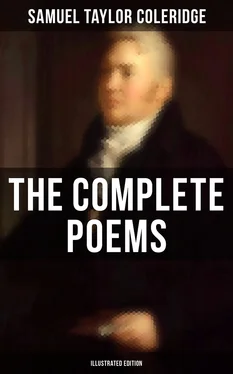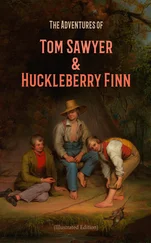A PLEA FOR SCHOLASTIC TERMS
The revival of classical literature, like all other revolutions, was not an unmixed good. One evil was the passion for pure Latinity, and a consequent contempt for the barbarism of the scholastic style and terminology. For awhile the schoolmen made head against their assailants; but, alas! all the genius and eloquence of the world was against them, and by an additional misfortune the scholastic logic was professed by those who had no other attainments, namely, the monks, and these, from monkishness, were the enemies of all genius and liberal knowledge. They were, of course, laughed out of the field as soon as they lost the power of aiding their logic by the post-predicaments of dungeon, fire, and faggot. Henceforward speculative philosophy must be written classically, that is, without technical terms—therefore popularly—and the inevitable consequence was that those sciences only were progressive which were permitted by the apparent as well as real necessity of the case to have a scientific terminology—as mathesis, geometry, astronomy and so forth—while metaphysic sank and died, and an empirical highly superficial psychology took its place. And so it has remained in England to the present day. A man must have felt the pain of being compelled to express himself either laxly or paraphrastically (which latter is almost as great an impediment in intellectual construction as the translation of letters and symbols into the thought they represent would be in Algebra), in order to understand how much a metaphysician suffers from not daring to adopt the ivitates and eitates of the schoolmen as objectivity, subjectivity, negativity, positivity. April 29, 1817, Tuesday night.
THE BODY OF THIS DEATH
The sentimental cantilena respecting the benignity and loveliness of nature—how does it not sink before the contemplation of the pravity of nature, on whose reluctance and inaptness a form is forced (the mere reflex of that form which is itself absolute substance!) and which it struggles against, bears but for a while and then sinks with the alacrity of self-seeking into dust or sanies , which falls abroad into endless nothings or creeps and cowers in poison or explodes in havock! What is the beginning? what the end? And how evident an alien is the supernatural in the brief interval!
SPIRITUALISM AND MYSTICISM
There are many, alas! too many, either born or who have become deaf and dumb. So there are too many who have perverted the religion of the spirit into the superstition of spirits that mutter and mock and mow, like deaf and dumb idiots. Plans of teaching the deaf and dumb have been invented. For these the deaf and dumb owe thanks, and we for their sakes. Homines sumus et nihil humani a nobis alienum. But does it follow, therefore, that in all schools these plans of teaching should be followed? Yet in the other case this is insisted on—and the Holy Ghost must not be our guide because mysticism and ghosts may come in under this name. Why? Because the deaf and dumb have been promoted to superintendents of education at large for all!
IDEALISM AND SUPERSTITION
Save only in that in which I have a right to demand of every man that he should be able to understand me, the experience or inward witnessing of the conscience, and in respect of which every man in real life (even the very disputant who affects doubt or denial in the moment of metaphysical arguing) would hold himself insulted by the supposition that he did not understand it—save in this only, and in that which if it be at all must be unique , and therefore cannot be supported by an analogue, and which, if it be at all, must be first, and therefore cannot have an antecedent, and therefore may be monstrated , but cannot be de monstrated.—I am no ghost-seer, I am no believer in apparitions. I do not contend for indescribable sensations, nor refer to, much less ground my convictions on, blind feelings or incommunicable experiences, but far rather contend against these superstitions in the mechanic sect, and impeach you as guilty, habitually and systematically guilty, of the same. Guilty, I say, of superstitions, which at worst are but exceptions and fits in the poor self-misapprehending pietists, with whom, under the name mystics, you would fain confound and discredit all who receive and worship God in spirit and in truth, and in the former as the only possible mode of the latter. According to your own account, your own scheme, you know nothing but your own sensations, indescribable inasmuch as they are sensations—for the appropriate expression even of which we must fly not merely to the indeclinables in the lowest parts of speech, but to human articulations that only (like musical notes) stand for inarticulate sounds—the οι, οι, παπαι of the Greek tragedies, or, rather, Greek oratorios. You see nothing, but only by a sensation that conjures up an image in your own brain, or optic nerve (as in a nightmare), have an apparition, in consequence of which, as again in the nightmare, you are forced to believe for the moment, and are inclined to infer the existence of a corresponding reality out of your brain, but by what intermediation you cannot even form an intelligible conjecture. During the years of ill-health from disturbed digestion, I saw a host of apparitions, and heard them too—but I attributed them to an act in my brain. You, according to your own showing, see and hear nothing but apparitions in your brain, and strangely attribute them to things that are outside your skull. Which of the two notions is most like the philosopher, which the superstitionist? The philosopher who makes my apparitions nothing but apparitions—a brain-image nothing more than a brain-image—and affirm nihil super stare —or you and yours who vehemently contend that it is but a brain-image, and yet cry, " ast superstitit aliquid. Est super stitio alicujus quod in externo, id est, in apparenti non apparet ."
What is outness, external and the like, but either the generalisation of apparence or the result of a given degree, a comparative intensity of the same? "I see it in my mind's eye," exclaims Hamlet, when his thoughts were in his own purview the same phantom, yea! in a higher intensity, became his father's ghost and marched along the platform. I quoted your own exposition, and dare you with these opinions charge others with superstition? You who deny aught permanent in our being, you with whom the soul, yea, the soul of the soul, our conscience and morality, are but the tune from a fragile barrel-organ played by air and water, and whose life, therefore, must of course be a pointing to—as of a Marcellus or a Hamlet—"Tis here! 'Tis gone!" Were it possible that I could actually believe such a system, I should not be scared from striking it, from its being so majestical !
THE GREATER DAMNATION
The old law of England punishes those who dig up the bones of the dead for superstitious or magical purposes, that is, in order to injure the living. What then are they guilty of who uncover the dormitories of the departed, and throw their souls into hell, in order to cast odium on a living truth?
DARWIN'S BOTANICAL GARDEN
Darwin possesses the epidermis of poetry but not the cutis ; the cortex without the liber , alburnum , lignum , or medulla . And no wonder! for the inner bark or liber , alburnum, and wood are one and the same substance, in different periods of existence.
SEVENTEEN HUNDRED AND SIXTY YARDS NOT EXACTLY A MILE
"It is a mile and a half in height." "How much is that in yards or feet?" The mind rests satisfied in producing a correspondency in its own thoughts, and in the exponents of those thoughts. This seems to be a matter purely analytic, not yet properly synthetic. It is rather an interchange of equivalent acts, but not the same acts. In the yard I am prospective; in the mile I seem to be retrospective. Come, a hundred strides more, and we shall have come a mile. This, if true, may be a subtlety, but is it necessarily a trifle? May not many common but false conclusions originate in the neglect of this distinction—in the confounding of objective and subjective logic?
Читать дальше












